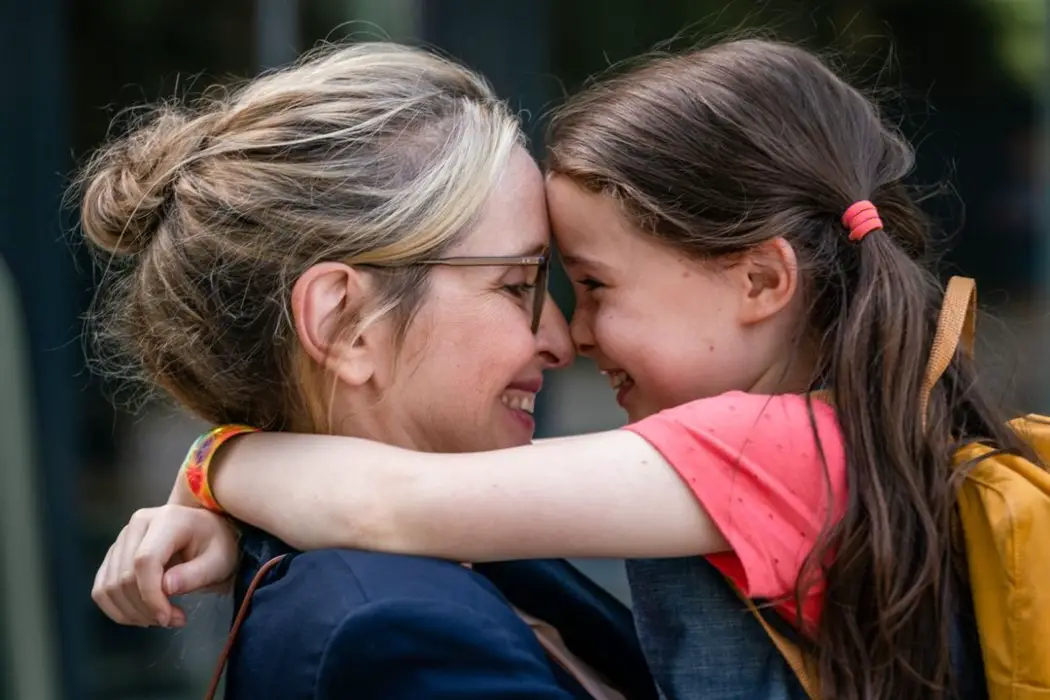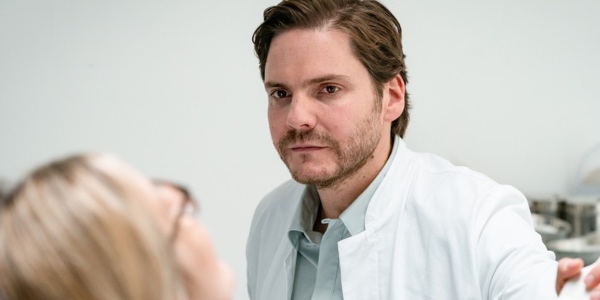TIFF 2019: MY ZOE

Wilson is a cinema enthusiast based out of Toronto, Canada.…
When it comes to the great Julie Delpy, one will always associate her with the work she’s done in front of the camera. There’s no question that she’s a great actress, and truly one of the most consistent on screen performers who seems to always select the right roles. But every couple of years, she reminds the world of her multi-hyphenate status by flexing her muscles as a talented filmmaker as well. Beyond sharing screenwriting credits for Before Sunset and Before Midnight (and earning Oscar nominations for both), she’s also written and directed a number of original films over the past 2.5 decades. And with her latest outing, My Zoe, she might have created her strongest work yet, both as an actress and filmmaker.
The film follows a couple played by Delpy herself and Richard Armitage, who while in the process of finalizing a divorce, struggle to balance their commitment as parents. Their only child, Zoe, becomes the only remaining connection that both pulls them together and pushes them apart. As tragedy strikes this tenuous family unit, the film evolves into a tale of emotional and ethical dilemmas that is best left as a surprise. Rounding out the already strong cast are Gemma Arterton and Daniel Brühl, playing a young couple that somehow gets intertwined in this tensely affecting story. This is simply one of those films where the less you know about the plot, the better.
The Art of Building Tension
Without getting into too much detail, let’s just say that My Zoe is a drama of epic dramatic proportions. What starts off as a domestic procedural narrative, quickly evolves into an emotional roller coaster with more loops and drops than one would have ever expected. As a filmmaker, Delpy must be commended for her ability to create a sense of looming tension in the background, right from the very beginning. Even though the film starts off with a much brighter disposition, it’s very clear that there’s something else in the air. Happy moments are always punctuated with a reminder that things are not completely fine, yet when the going starts to get rough, the sense of shock and surprise is not even slightly muted.

And this lingering element of surprise when the plot takes a deep dive into its darker territories is what makes the film such a unique experience. Whereas a lot of films tend to ramp up tensions gradually, there’s usually a lack of subtlety as the cinematic experience is painted as such from the very beginning. Notable examples that come to mind include Requiem for a Dream and 21 Grams, two films that masterfully build up tension to a final culmination of heartbreak and sadness. But was anyone surprised with the final direction that the film devolved to? Absolutely not. It was all clearly written on the wall from the very first scene, and that’s exactly how it was meant to be. With My Zoe, Delpy manages to somehow thread this line of tension so tightly that expectations at the outset are not clear at all. Despite feeling the tension, audiences are somehow still intentionally left in the dark, which is refreshing in its own way.
A Sparring Match Between Thespians
Coming out of the fall festival circuit, and likely into this year’s awards season, critics have been talking about the sparring matches between Scarlett Johansson and Adam Driver in Marriage Story. The two give damn near perfect performances as a spiteful couple on the verge of separation, and deserve all the praise they’re been getting. But equally deserving of praise are the powerhouse sparring matches between Delpy and Armitage, both of whom give intensely visceral performances that unfortunately won’t get nearly as much attention.
Simply put, Delpy and Armitage have the ability to both tear up and subdue a scene, and seem to do this with ease. With what transpires throughout the film, you would think that it’d be hard not to resent these characters, but any such feelings are overshadowed by a resounding sense of empathy. The emotional arc that these characters create is one too complex for words, but is felt with complete clarity by the time the credits roll. And as usual, both Arterton (one of the most underrated actresses currently working, in my opinion) and Brühl are great in their supporting roles. Relative newcomer Sophia Ally (she has a few smaller credits to her name) also shines as the titular Zoe, conveying a well needed brevity of innocence that really anchors the film’s overall narrative.

The Beauty of Moral Ambiguity
In the end, My Zoe is really a character study of how people deal with ethics and morality in the face of grave tragedy. But the film doesn’t judge what’s right or wrong based on societal or legal norms, and instead, makes judgement based purely on human emotion, something that is inherently flaw. The film therefore doesn’t cast any judgment on its characters’ decisions, as it clearly establishes a narrative framework where moral ambiguity is the only sensible default. For this very reason, My Zoe is not an easy film to watch and is sure to polarize audiences, especially those who might draw a personal connection with its primary narrative. But part of what makes cinema so great is its ability to explore the uncomfortable aspects of humanity, and moral ambiguity therefore seems to be a recurring theme for any cinephile who spends time exploring the cinematic art form. Julie Delpy goes beyond expectations by delving into the emotional ruins of conflicting morality with such perfection, and proves herself to be a truly remarkable filmmaker.
Does content like this matter to you?
Become a Member and support film journalism. Unlock access to all of Film Inquiry`s great articles. Join a community of like-minded readers who are passionate about cinema - get access to our private members Network, give back to independent filmmakers, and more.
Wilson is a cinema enthusiast based out of Toronto, Canada. He escapes from his day job by writing random thoughts about cinema on the internet. Although he has a longstanding penchant for Hong Kong cinema, he considers himself to be an advocate for Asian cinema in general. He has been attending the Toronto International Film Festival every year since 2005, and more of his work can be found on his website: www.wilson-kwong.com.













